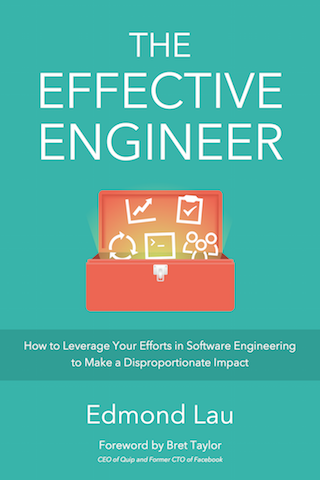How to Unlock More Productive Conversations with Two Key Skills

I blinked away the tears.
Team morale was crumbling. Co-workers, many I considered friends, were leaving the company. I was at a meeting with senior leaders, and I had just expressed concern that the way the company ran projects might be hurting the team — a team that I cared so much about and where I had invested years of my life.
I had expected the leadership team to support me and say, “Yes! Edmond, you’re right! We need to address this.”
But instead, they challenged my diagnosis and my ideas with cold questions.
“Where’s your data?”
“How do you know what you’re saying is true?”
“Why are you doing this?”
In hindsight, they were probably just doing their due diligence — these were the same types of questions that I might ask if I were engineering a solution to a technical problem. But this wasn’t a technical problem. And in the moment, their line of questioning put me on the defensive. I felt attacked and misunderstood — that despite my years of dedication, they still mistrusted my motives.
I had entered the meeting feeling determined to help fix things, but I walked out feeling dejected and powerless. A few months later, I left that company.
It seems like a lifetime ago since that meeting took place, but the failure still stands out in my mind. Both sides came into the meeting with good intentions — we all wanted what we thought was the best for the team. And yet, no one won in that conversation. I was unable to convince the leadership team to take action on what I cared about. And the senior leaders lost a valued employee who only 60 minutes prior had been heavily invested in the team.
What happened here? How did the conversation go so wrong? And how might things have turned out differently?
The Missed Opportunities that Surround Us
In the universe of possible conversations, there clearly existed a better outcome.
There existed a conversation that could have led me to feel heard and understood — one where I felt empowered and supported to improve morale at the company. And that could’ve only been a good outcome for everyone on the team. Not bringing that conversation into existence was a missed opportunity.
Situations like these — where missed opportunities for conversations lead to outcomes that no one wants — happen often.
Maybe you come together with members from other teams to work on a shared project. You expect to see everyone work together. But instead, people talk right past each other. One person only worries about what the project means for her own team. Another doesn’t care to participate in the discussion and just asks the group to tell him what he needs to do. Someone who doesn’t fully understand the project keeps driving the conversation in an unproductive direction. You try to point out everything that needs to happen for the group to move forward and get ignored — so you give up and sit back for the rest of the meeting. Everyone leaves frustrated, with no clearer picture of what needs to be done — a shared opportunity to collaborate goes wasted.
Or maybe you’re leading a team-wide engineering effort. You single-handedly put together a proposal for what needs to be done, and you share it with the team, proud of your own leadership abilities. But you notice that people don’t fully buy in to what you propose. They don’t rally around you, fully committed, as you might have expected. You missed a group conversation to listen to what was actually important to your team. You plowed forward without first building alignment around a shared vision. No wonder they feel left behind.
Or maybe you’re frustrated by the careless behavior of an engineer you work with. But instead of expressing that frustration to that person, you let it simmer inside. And that frustration not only distracts you from your own work, but it also taints your subsequent interactions with that person with hints of impatience and annoyance. Not articulating what you’re feeling deprives you of an opportunity to hear their side of the story — perhaps your co-worker had been under some intense pressure you hadn’t been aware of. A conversation might have shifted your perspective from frustration toward empathy for their situation or even an appreciation for how they’re contributing despite the pressure. You might have even then offered your help.
In each of these situations, a missed opportunity leads to suboptimal outcomes. We can imagine how, with more effective communication, what happened might have aligned more closely with what’s possible.
Articulating What’s Going On and Listening to What’s Not Being Said
So how could my conversation with the leadership team have turned out differently?
The key insight here is that either side could have changed the outcome of the situation, with more effective communication.
Had I been more mature back then, I could have better articulated what was going on — both what I wanted as well as what I was feeling in response to their questions. I could have said:
- “I am sensing low morale on the team, and that makes me feel sad because I really care about the happiness of people I’ve worked with for so long. Here’s one thing I’d like for us to do about it.”
- “I took a risk by speaking up, and I am sensing some distrust from you toward what I’m saying.”
- “Your line of questioning makes me feel defensive, as if you’re grilling me and not trusting what I’m saying. That also makes this space less safe for me to share my thoughts. Is that your intention?”
- “I came into this meeting feeling determined, but I’m noticing that what you’re saying is making me feel very demotivated to actually contribute to address the problem. What do you want to achieve with your questions?”
These statements alone would’ve shifted the tone of the conversation. By articulating what was going on for me in the conversation — rather than letting my frustration build and subconsciously color my attitude — I would have opened the possibility to feeling heard and understood by the leadership team.
Because when what’s going on inside goes unexpressed, the emotional undercurrents are hard to address. And assuming we all wanted what was best for the team, addressing the tension that existed would have enabled us to connect over the shared intentions and move toward meaningful action.
The senior leadership team could also have brought about a better outcome by listening to what wasn’t being said.
Even if they weren’t confident about my actual proposal — and they had every reason to ask questions before acting — they could have started by acknowledging the strong emotions behind my words:
- “We see and appreciate that you care deeply about the happiness of the team.”
- “What’s important about this initiative for you?”
- “What would you like to see as a result of this conversation?”
- “What matters to you about what we’re doing and what is happening for the team?”
The acknowledgment and the questions would have invited me to open up more about what was important to me. They would have humanized the discussion rather than treating it as an engineering problem to be debugged and solved.
In every conversation, you have the power to shift the tone and change the outcome — whether you’re a manager, an individual contributor, a peer, a friend, or any other role.
The two core skills of articulating what’s going on and listening to what’s not being said allow us to do that. These skills — which I first discovered through my recent training 1 and work as a leadership coach — have quickly become relevant to every work and personal relationship I have. They let us reclaim the missed opportunities in how we work and connect with others.
More importantly for you, the skills are learnable. When you develop those skills, you can discover the shared alignment that exists and turn good intentions into good results. You can create conversations where what’s being said rings true for both sides and each side sees and hears the other.
If these skills resonate with you and you want to learn more, you’re in luck.
My friend Diana Kimball — a leadership coach and senior product manager — and I will be co-leading a series of workshops on effective communication. You’ll develop skills and tools to articulate what’s really going on and to listen to what’s not being said. You’ll learn how simple but powerful questions can completely shift the tone of conversations and let you build stronger relationships with the people you interact with. What new possibilities would that open up for you, in work and in life?
Sign up to be notified about the workshops.

Take the Effective Communication workshop
Create new possibilities in your work & life by learning to articulate what's going on and to listen to what's not being said.
Thanks to Diana Kimball and Chen Xiao for reading a draft of this post.

“A comprehensive tour of our industry's collective wisdom written with clarity.”
— Jack Heart, Engineering Manager at Asana
“Edmond managed to distill his decade of engineering experience into crystal-clear best practices.”
— Daniel Peng, Senior Staff Engineer at Google

“A comprehensive tour of our industry's collective wisdom written with clarity.”
— Jack Heart, Engineering Manager at Asana
“Edmond managed to distill his decade of engineering experience into crystal-clear best practices.”
— Daniel Peng, Senior Staff Engineer at Google


















Leave a Comment